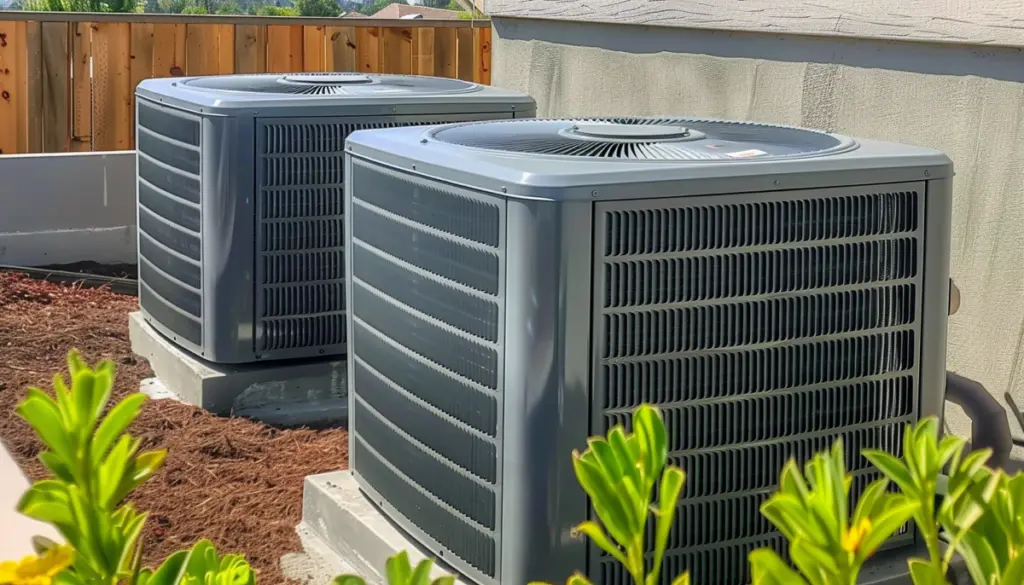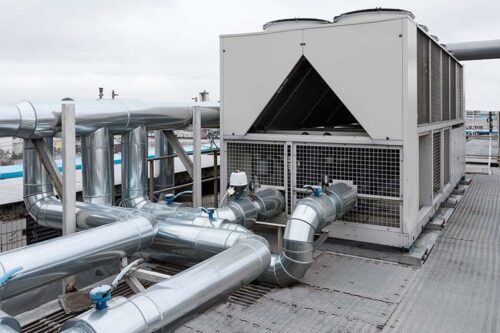Your Overview to Choosing the Right HVAC System for Your Demands
Picking an appropriate A/c system is an important choice that can dramatically influence comfort and energy efficiency in your home. Furthermore, understanding the different kinds of systems available and their energy ratings can assist direct your option.
Comprehending A/c System Kind
When selecting a cooling and heating system, it is necessary to comprehend the various types available to meet your particular requirements. The primary groups of a/c systems include central air systems, ductless mini-split systems, heat pumps, and heating system systems.
Air conditioning systems are developed to cool down numerous areas making use of ductwork to disperse conditioned air. They are ideal for bigger homes calling for regular temperature level control. Ductless mini-split systems, on the various other hand, supply flexibility and efficiency, as they enable zoning abilities, allowing private space temperature level regulation without the need for ductwork.
Heat pumps run by moving warmth instead than creating it, making them an energy-efficient choice for both home heating and cooling. They are particularly reliable in moderate climates. On the other hand, furnace systems utilize burning to create warm, utilizing either gas, power, or oil. They are favored in chillier areas where home heating demands are substantial.
Each system has distinct benefits and considerations, consisting of installation needs, maintenance, and overall costs. Comprehending these kinds will aid homeowners make notified choices based on their details needs, climate, and budget plan restrictions, inevitably making certain optimum convenience and performance.
Assessing Energy Performance
Power effectiveness is an essential variable in the option of a HVAC system, as it directly impacts both utility prices and environmental sustainability. The Seasonal Power Efficiency Proportion (SEER) and the Home Heating Seasonal Performance Aspect (HSPF) are vital signs for air conditioning systems, representing their efficiency over a typical air conditioning and heating period, specifically.
In addition, search for systems that have actually made the power celebrity label. This qualification indicates that the equipment satisfies stringent energy efficiency standards set by the united state Environmental Defense Agency. Think about the system's variable-speed innovation, which permits extra reliable operation by readjusting the outcome to match need, even more improving power cost savings.
Additionally, proper insulation and duct securing can significantly influence the system's general effectiveness. In summary, picking an energy-efficient HVAC system not only reduces your power costs however additionally contributes to a more sustainable environment, making it a vital factor to consider in your acquiring procedure.
Assessing System Size
Selecting the ideal dimension for a cooling and heating system is critical to making sure optimal efficiency and performance. A small system may struggle to keep desired temperatures, leading to raised deterioration, higher energy consumption, and lessened comfort. On the other hand, an oversized system can cause quick cycling, which not only creates ineffectiveness but additionally impacts moisture control and air top quality.
To examine the optimal sizing, it is necessary to perform a tons estimation, which thinks about browse around here variables such as the square footage of the space, insulation levels, home window dimensions, and local environment conditions - boilder repair. This estimation helps figure out the British Thermal Devices (BTU) required for home heating and cooling. Additionally, it is important to make up particular demands, such as the variety of residents and the visibility of heat-generating devices

Setup Expenses and Budget Plan
A thorough understanding of setup prices is important for homeowners and companies considering a brand-new a/c system. The total expenditure of setup can differ widely based upon several aspects, consisting of the sort of system, the complexity of installation, and the area of the residential property. On standard, setup costs can range from $3,000 to $10,000, depending furnace installation on the system's dimension and performance.
When budgeting for a HVAC system, it is vital to consider not only the preliminary setup prices yet also any extra costs that may develop, such as ductwork modifications, electric upgrades, or permits. In addition, it is suggested to get several quotes from certified a/c specialists to guarantee competitive rates.
Home owners must likewise factor in the prospective long-lasting savings related to energy-efficient systems. While the upfront expenses may be higher, energy-efficient versions can result in considerable savings on utility expenses gradually.

Maintenance and Longevity Factors To Consider

Correct upkeep consists of routine inspections, filter replacements, and cleaning of coils and air ducts (hvac). Neglecting these tasks can lead to lowered efficiency, raised power costs, and early system failing. Homeowners should additionally consider the availability of solution contracts, which commonly provide scheduled maintenance and concern solution, ensuring that the system continues to be in peak condition
Durability varies by system kind; for example, well-kept central air units can last 15 to twenty years, while warmth pumps may have a life expectancy of 10 to 15 years. Selecting a system with a solid track record for reliability, together with purchasing regular maintenance, can dramatically improve the system's toughness. Furthermore, selecting higher-efficiency models might cause lasting financial savings on power costs, stabilizing the initial investment with time.
Final Thought
In conclusion, selecting an appropriate Heating and cooling system demands mindful consideration of numerous aspects, including system kinds, energy effectiveness, and dimension. Inevitably, a knowledgeable decision pop over to these guys will certainly enhance comfort and effectiveness in residential environments while maximizing energy savings.
Choosing an appropriate A/c system is an essential choice that can substantially impact comfort and power effectiveness in your home.Energy performance is a crucial element in the choice of a Cooling and heating system, as it directly affects both utility costs and ecological sustainability. The Seasonal Power Effectiveness Proportion (SEER) and the Heating Seasonal Performance Variable (HSPF) are important indicators for air conditioning systems, representing their efficiency over a regular cooling and home heating season, specifically. Choosing a system with a strong track record for dependability, along with investing in normal upkeep, can dramatically enhance the system's durability.In conclusion, picking a proper Heating and cooling system requires mindful factor to consider of numerous variables, consisting of system types, power efficiency, and size.